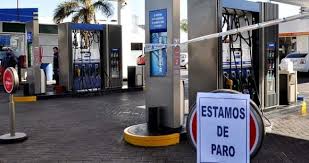
The decision was made in 48 hours. On December 17, Félix Rodríguez, who served as deputy director of Production and General Manager of Production of Western Exploration, Production and Upgrading Division of PDVSA, requested the TSJ to step in to stop the protest affecting the operations of the industry.
Rodríguez’s petition was admitted by the Constitutional Court in a presentation by Justice José Manuel Delgado Ocando, and determined that the so-called oil strike violated “the right to life, protection of personal integrity and security, family protection, health services, performing the job, getting a salary, job stability, to receive comprehensive education, to engage freely in the preferred economic activity, private property and having quality goods and services.” In addition, it blamed members of the civil association Gente del Petróleo, formed by PDVSA managers who led the strike.
The judgment ordered “all authorities and individuals linked to the resumption of economic and industrial activity of that corporation, to abide by those decrees and resolutions issued by the relevant bodies which aim to achieve the restoration of operations of the oil industry and related companies.” Whoever disregarded this order risked a prison sentence of six to 15 months, warned the Constitutional Court.
The afternoon of that Thursday December 19, 2002, the Minister of Energy and Mines, Rafael Ramírez, applauded the decision of the Supreme Court. “This decision further confirms what we have been saying in the consciousness of Venezuela,” said Ramírez, who used Delgado Ocando’s arguments to launch “a call to close ranks in defence of PDVSA, to close ranks for the country”.
Extract of the judgment
The Court finds that the constitutional rights that the [petitioner] claims as violated (…) [by] the interruption and reduction of economic and industrial activity of (…) [PDVSA, company] are of “public utility and social interest ,” among others: the right to life, protection of personal integrity and security, family protection, health services, to perform a job, to get a salary, labour stability, to receive comprehensive education, to engage freely in the preferred economic activity, private property and to have quality goods and services protected by the Constitution (…)” agrees to issue a precautionary measure ordering “all authorities and individuals linked to the restoration of economic and industrial activity (…) [PDVSA] to abide by those decrees and resolutions issued by the relevant bodies which aim to achieve restoration of operation of the oil industry related companies, (…) non-compliance of this order shall be considered a contempt of court.”